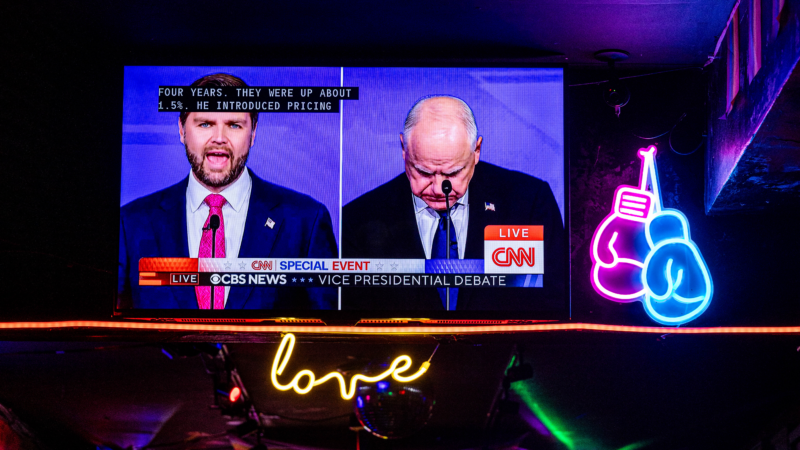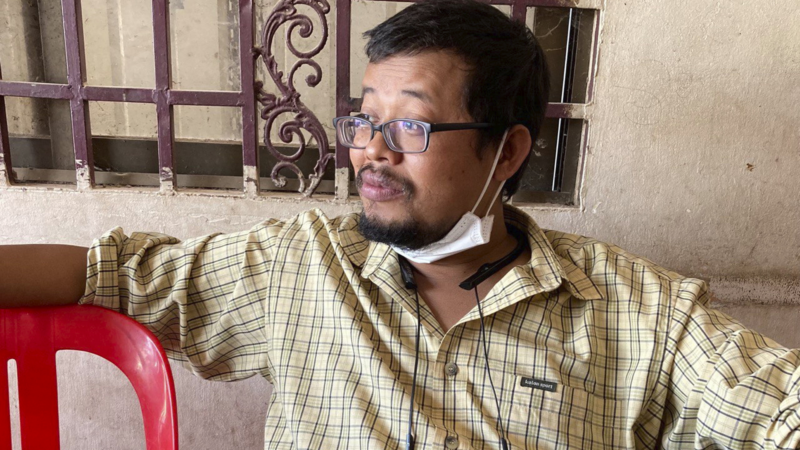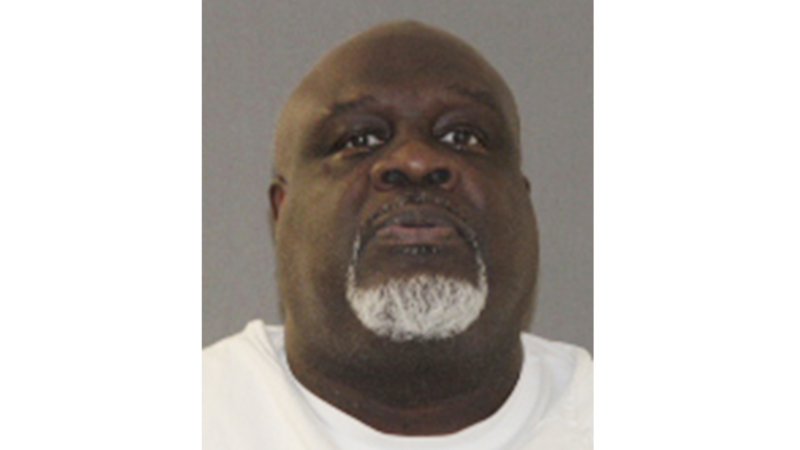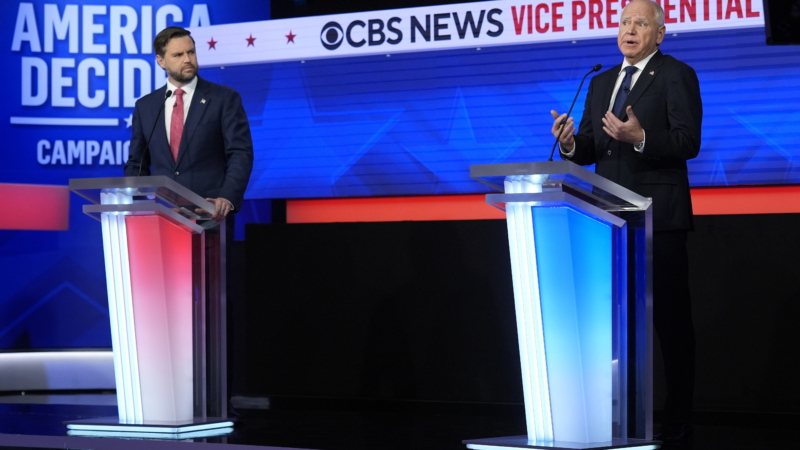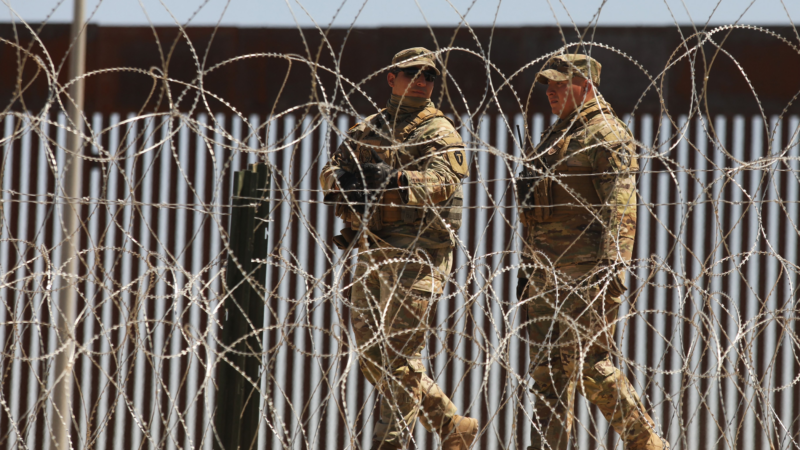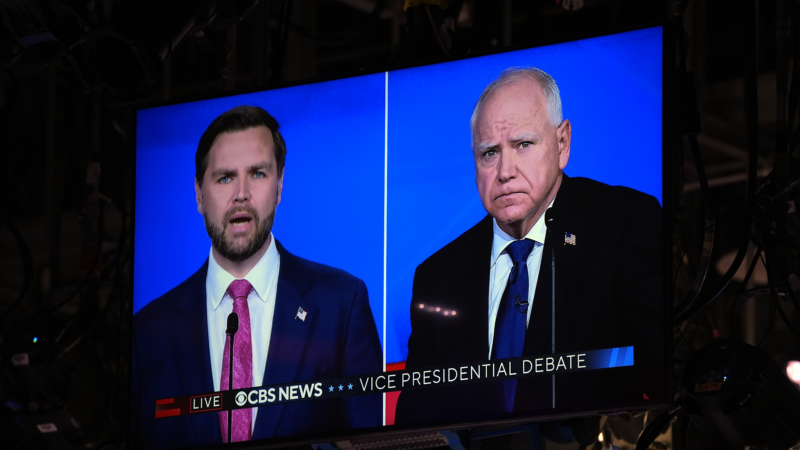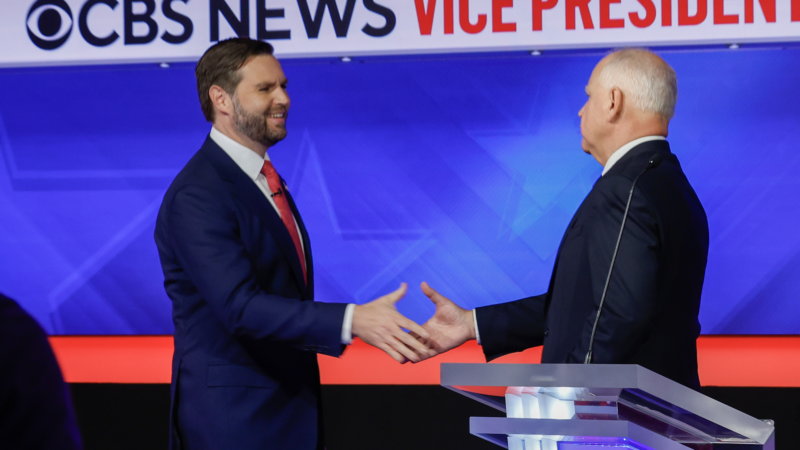On the VP debate stage, two visions for policing in America were laid out
During the vice presidential debate Tuesday night, Minnesota Gov. Tim Walz spoke urgently about the need for gun control while answering a question about preventing school shootings.
Ohio Sen. JD Vance, on the other hand, spoke of increasing police presence at schools in his answer, talking of the need to “arrest the bad guys, put them away and take offenders off the streets.”
The answers highlight the disparate philosophies the two candidates have on law and order and ensuring public safety in the country.
On the campaign trail and in his career on Capitol Hill, Vance has positioned himself as a staunch supporter of police, including introducing a resolution in Congress last year expressing support for law enforcement.
Some key context: In 2022, the city council in Washington, D.C. passed a sweeping police reform bill, which banned neck restraints, improved access to footage from officer body worn cameras, strengthened officer training and further restricted when and how officers use force, among other changes.
In response — and because Congress ultimately has legislative control over the nation’s capital — Vance introduced a resolution in the House that would have nullified the reforms. In his comments about the resolution, which did not pass, Vance described the reforms as hindering officers with “these ridiculous exhaustion requirements before they can use lethal force to protect themselves and people around them.”
Though Vance used to describe himself as a “never Trump guy,” he is now a devoted supporter of the former president, who has also positioned himself as a tough-on-crime candidate. Indeed, the Republican platform this year promises to “replenish” police departments, stand up to “Marxist” prosecutors and protect officers from “frivolous” lawsuits. As president, Trump’s administration pulled back on suing police departments for violations of civil rights.
Walz’s record on policing is very different. In the years since a police officer murdered George Floyd in Minneapolis, the governor has signed into law a number of police reforms in the state, including a ban on chokeholds, “warrior-style” police training and mandating that officers intervene if another officer uses excessive force.

Under Walz, the Minnesota Department of Human Rights also negotiated a consent decree with the city after Floyd’s death, aimed at reforming the police department and increasing accountability. However, he opposed a measure in 2021 to replace the Minneapolis Police Department with a new public safety agency, which many saw as an attempt to defund the police in the city.
After Harris chose Walz as her running mate, the Republican National Committee put out a statement calling the pair “weak on crime, defund the police liberals.” Specifically, they claimed that Walz “let rioters burn the Twin Cities.” Vance has also aimed this criticism at Walz.
In the days after the murder of Floyd, demonstrations sprung up around the city. After dark, some protests turned violent and people damaged property and set fire to buildings.

In response, Walz did deploy the Minnesota National Guard and the state patrol to help Minneapolis police respond to the city’s unrest. But the public’s reaction to his response has been mixed in the years since: Conservatives have claimed Walz was too slow to act, while some liberals have said he was not progressive enough in his response.
Two days after Floyd’s death, Minneapolis Mayor Jacob Frey requested that Walz call in the National Guard to assist police. Initially, Walz and his administration said they didn’t want to further inflame tensions with a surge of National Guard and state troopers. At the time, Walz said he was waiting for Frey to request assistance before sending in the National Guard.
A day later, Walz activated a first round of National Guard members to assist police across the region. That night, demonstrators breached the Third Police Precinct in Minneapolis and set it ablaze.
Regarding the crisis, Frey said he did ask for help and that the governor acted too late. A city audit later found that Frey didn’t consult the appropriate department to request National Guard soldiers, which may have delayed their arrival, and offered insufficient detail about where the city needed support. Walz said at the time: “If the issue was that the state should have moved faster, that is on me.”
A Cambodian reporter who exposed scams is charged over online posts
The U.S. State Department said it was “deeply troubled” by the recent arrest of Mech Dara, an award-winning Cambodian investigative reporter who exposed online scams and corruption.
A Texas man is executed for fatally stabbing twin teenage girls in 1989
Garcia Glenn White, 61, was the sixth inmate put to death in the U.S. in the last 11 days. His execution comes shortly after the U.S. Supreme Court rejected three last-ditch appeals.
NPR fact checked the Vance-Walz vice presidential debate. Here’s what we found
JD Vance and Tim Walz debated on Tuesday in the last scheduled debate of the election. The sparring was mostly collegial but a number of points on key issues require additional context or corrections.
Vance leaves the cat and dog claims behind as he battles Walz over immigration
JD Vance spoke of workers and the impact of immigration, while Tim Walz decried dehumanizing rhetoric.
‘A damning non answer’: Vance refuses to say whether Trump lost in 2020 at debate
Democratic VP hopeful Tim Walz called his response a "damning non answer."
Despite the candidates’ differences, ‘agree’ was a buzzword on the VP debate stage
Tim Walz and JD Vance shook hands multiple times on the debate stage, and each spoke of several areas in which they agree with the other. Here are some examples.
